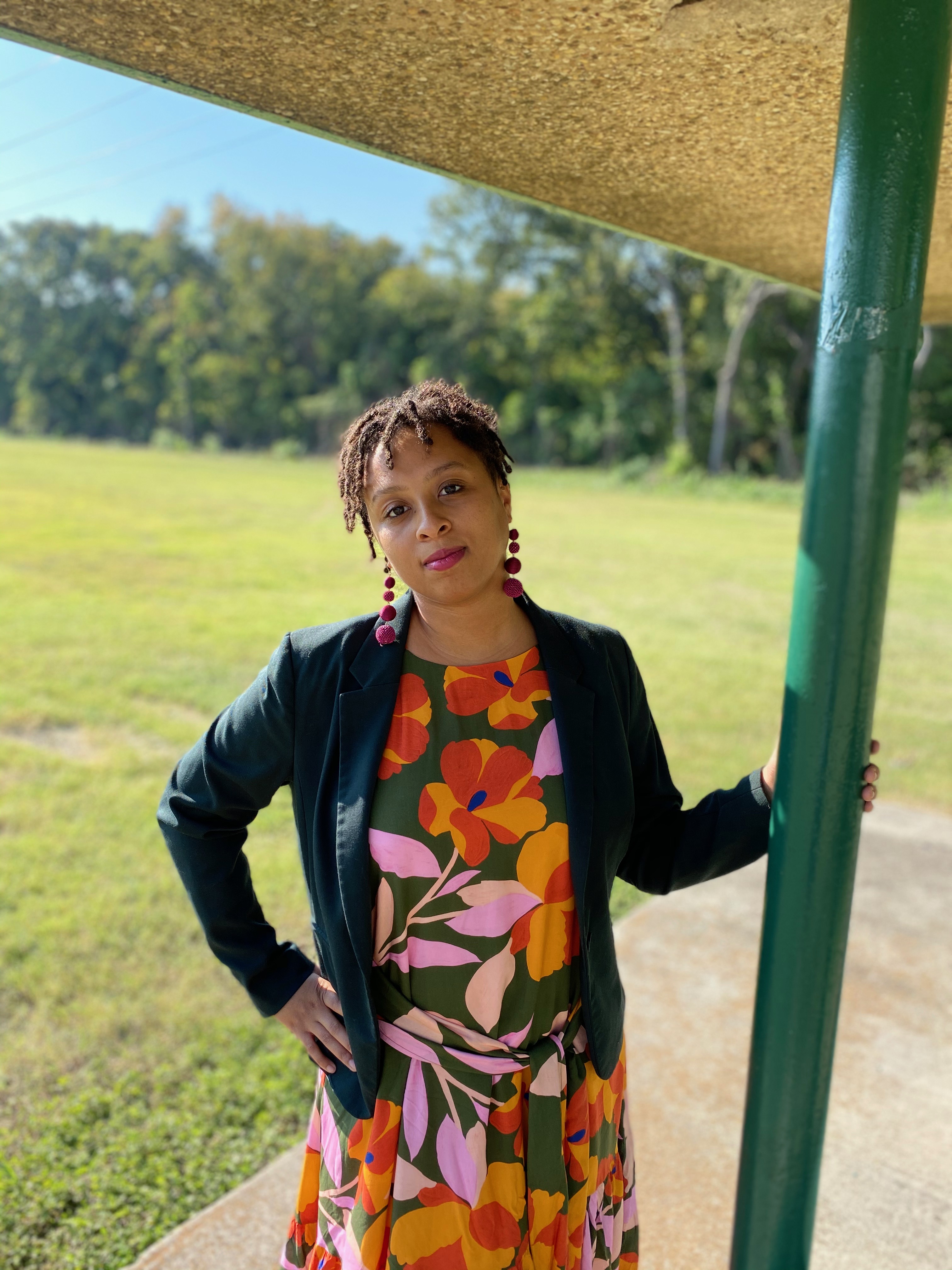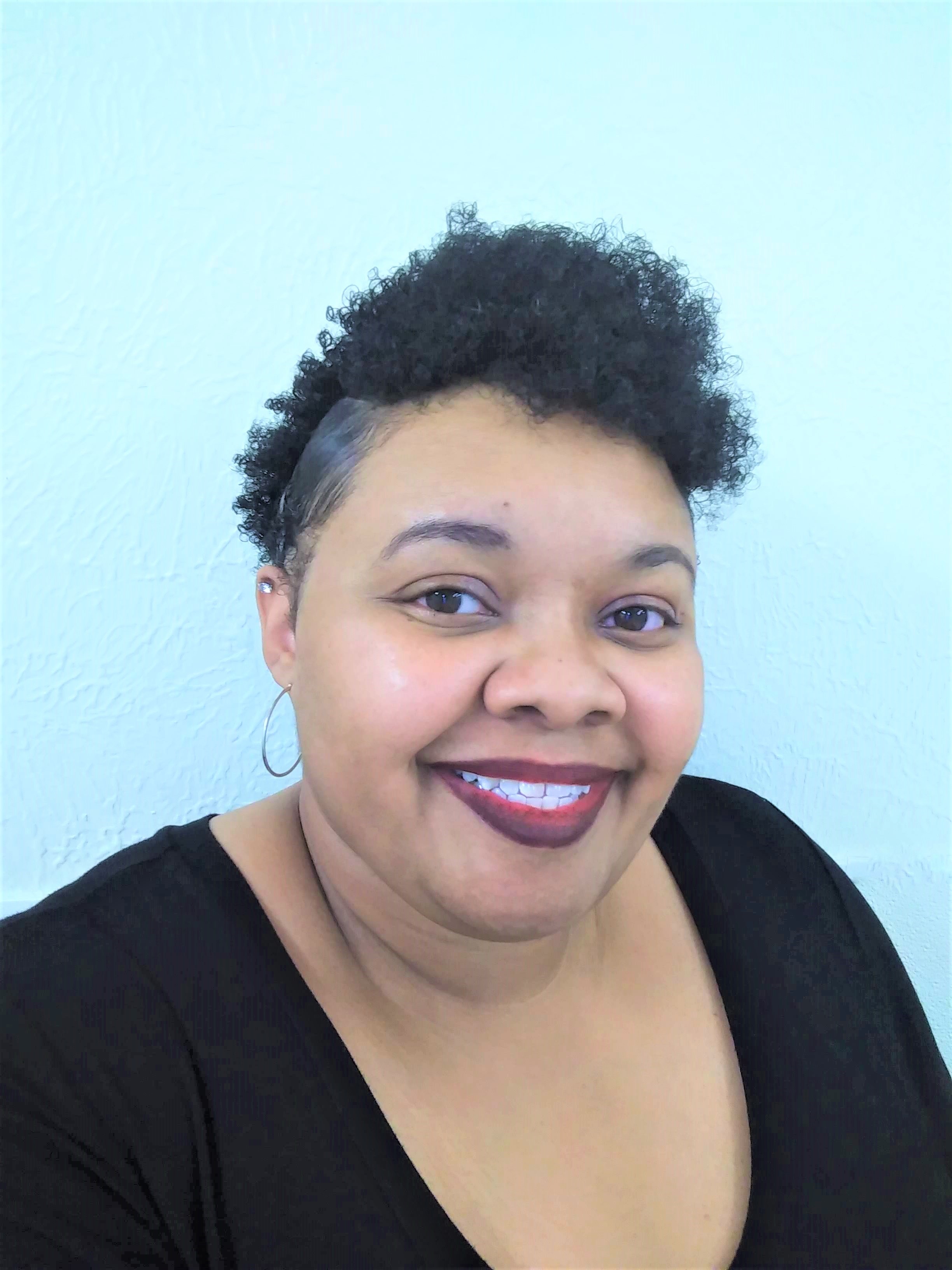English Ph.D. Candidate Micah-Jade Coleman Stanback and Rhetoric and Composition Ph.D. Candidate Angela Mack Discuss How Their Research Contribute To History and Healing.
TCU’s English Department houses two outstanding Ph.D. programs: English and Rhetoric and Composition. Though they have different focuses, the research from Ph.D. candidates Micah-Jade Coleman Stanback (English) and Angela Mack (Rhetoric and Composition) look at questions of who gets to tell stories, what do those stories say and what can be taken from literature of the past and the rhetoric of the present.
“Innocence” and Black Children in Literature

Stanback’s interest in children’s literature and the idea of “cultural notion of innocence” began with a fortunate coincidence at her undergraduate and master’s alma mater of the University of Southern Mississippi.
“I’ve enjoyed reading since I was a kid, but in my junior year of college, I took a children’s and Young Adult (YA) literature course that emphasized seeing the literary value of stories for young people,” Stanback said. As it turned out, Southern Miss housed the de Grummond Children’s Literature Collection, one of North America’s most extensive collections of children’s literature. As her studies continued, Stanback because more interested in the idea of childhood innocence and in particular “who gets to be innocent, especially by our cultural standards of innocence?”
Now a Ph.D. candidate, Stanback’s dissertation studies how 19th-century Black authors, such as Harriet Jacobs, portrayed ideas of care for Black children versus white authors of the time, like Harriet Beecher Stowe. According to Stanback, Stowe’s treatment of one character, a Black child named Topsy, at the hands of a white woman named Mrs. Ophelia, is a problematic look at how white authors of the period viewed Black children, even those like Stowe who was opposed to slavery.
“Miss Ophelia’s idea for how to ‘save’ Topsy is consumed by respectability politics and later in the novel, she prescribes an ‘acceptable’ trajectory for Topsy by instructing her to choose teaching as a profession and expecting Topsy to reinforce Ophelia’s liberal, albeit racist teachings,” Stanback said.
“But what I argue is that had Miss Ophelia had a genuine acceptance and appreciation of Topsy, she would not only be concerned with her survival as a Black girl, but also her aspirations, joy, faults, and fears—the things that make us human,” she continued.
Stanback is a firm believer in the value of studying children’s literature, something she said she has been challenged for pursuing in the past. “In many social issues we evoke ‘What about the children,’ but then actually don’t take the time to listen to what they might want and need,” she said. “They have autonomy. Add the marginalization of race to the mix, Black children are double ignored in our society,” Stanback added.
“During this Black History Month we need to remember that racial violence isn’t only limited to adults, but most importantly, Black kids have a voice that needs to be heard." - Micah-Jade Coleman Stanback on Black children's roles in discussions of racism
The research, involving spending long periods exposed to troubling, racist literature, can be taxing, but the work can be rewarding and even healing, according to Stanback. “My work is also concerned with an ethic of healing and doing healing work means that you sometimes have to dig through the weeds to get to the soil that will produce a new way of thought and growth,” she said.
Black children, said Stanback, have played important roles in our past and present discussions of race and racism. “During this Black History Month we need to remember that racial violence isn’t only limited to adults, but most importantly, Black kids have a voice that needs to be heard,” she said, “Their experience matters!”
Aristotle, Luke Cage and Talking About Trauma

Do a Google Scholar search for Angela Mack, and you will find a piece entitled "Afrosurrealism, Aristotle, and Racial Presence in Netflix’s Luke Cage.” An unusual set of subjects to be sure, but Mack’s talent is such that she goes between talking about the ancient Greek philosopher and the Netflix series inspired by the comic of the same name with ease.
“I am a huge Marvel Cinematic Universe fangirl,” Mack said. “What I found interesting was that Luke Cage is a bulletproof superhero in black skin. One of the trademarks in that show was him wearing a hoodie with bullet holes. This was a way of giving a very visible badge of honor to Trayvon Martin and the movement for Black lives to matter,” she continued.
“I saw how the show is making some classic rhetorical appeals with Luke Cage’s Hercules-like journey, but also a commentary on race, on our country grappling with whether we are post-racial and radical changes of the administration,” Mack concludes.
Mack’s research focuses on how the perspectives of African American rhetorics specifically, along with the rhetorics of Hispanic Americans, Native Americans, Asian Americans and Pacific Islanders, can be interpreted through multiple definitions of space and place, even in the classroom.
To that end, her dissertation project is based on her own experience and a tragic element of recent Fort Worth history. On October 12, 2019, Atatiana Jefferson was killed in her home by Fort Worth Police Officer Aaron Dean.* Mack is native of Fort Worth’s Morningside neighborhood, not far from were Jefferson resided in the same zip code. Morningside, and its associated zip code of 76104, have some of the highest levels of poverty in Texas and the lowest life expectancy of any Texas zip code.
The pandemic forced an intense focus on issues of police brutality and a racial reckoning across the nation, and according to Mack, she watched her community react and began to ask questions.
"The greatest thing to advocate for may be a bit cliché, but it's true, ‘representation matters.’ Black history should be part of who we are and what we do in honor of it regularly." - Angela Mack
“What I began to think through is that after everyone finishes the initial protests and rallies and marches, and things start to die down, what happened after?” she asked. “Who's exploring the narratives of where these tragedies happen, the impact on those families and communities, how we sustain ourselves, move through it and figure out life, in those areas of trauma?” she continued.
Mack hopes her dissertation will document how Jefferson’s family and the Fort Worth community has dealt with the tragedy and heals itself moving forward, even with a trial approaching.
In closing, Mack recounted how her presence helped inspire an undergraduate student, also a Black woman, to begin graduate studies of her own. “I have a student who was the very first class that I taught here at TCU. She is getting ready for graduate school and part of the reason she told me was that she saw an instructor that looks like her,” Mack said.
“The greatest thing to advocate for may be a bit cliché, but it's true, ‘representation matters.’ Black history should be part of who we are and what we do in honor of it regularly,” she concluded.
*Dean was indicted for murder by a Tarrant County grand jury in December 2019. The trial is expected to begin in May 2022. In January 2022, lawyers for Dean asked for a change of venue. No decision on a change of venue has been announced at the time of this article’s release.
